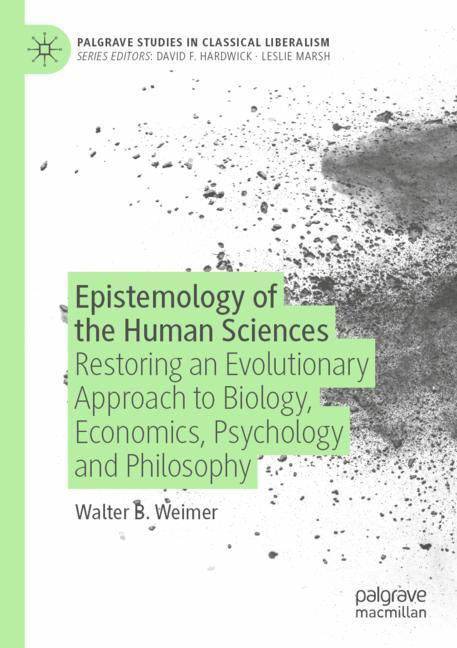
Bedankt voor het vertrouwen het afgelopen jaar! Om jou te bedanken bieden we GRATIS verzending (in België) aan op alles gedurende de hele maand januari.
- Afhalen na 1 uur in een winkel met voorraad
- In januari gratis thuislevering in België
- Ruim aanbod met 7 miljoen producten
Bedankt voor het vertrouwen het afgelopen jaar! Om jou te bedanken bieden we GRATIS verzending (in België) aan op alles gedurende de hele maand januari.
- Afhalen na 1 uur in een winkel met voorraad
- In januari gratis thuislevering in België
- Ruim aanbod met 7 miljoen producten
Zoeken
Epistemology of the Human Sciences
Restoring an Evolutionary Approach to Biology, Economics, Psychology and Philosophy
Walter B Weimer
€ 213,95
+ 427 punten
Uitvoering
Omschrijving
This book argues for evolutionary epistemology and distinguishing functionality from physicality in the social sciences. It explores the implications for this approach to understanding in biology, economics, psychology and political science. Presenting a comprehensive overview of philosophical topics in the social sciences, the book emphasizes how all human cognition and behavior is characterized by functionality and complexity, and thus cannot be explained by the point predictions and exact laws found in the physical sciences. Realms of functional complexity - such as the market order in economics, the social rules of conduct, and the human CNS - require a focus on explanations of the principles involved rather than predicting exact outcomes. This requires study of the historical context to understand behavior and cognition. This approach notes that functional complexity is central to classical liberal ideas such as division of labour and knowledge, and how this is a far more powerfuland adequate account of social organization than central planning. Through comparison of these approaches, as well as its interdisciplinary scope, this book will interest both academics and students in philosophy, biology, economics, psychology and all other social sciences.
Specificaties
Betrokkenen
- Auteur(s):
- Uitgeverij:
Inhoud
- Aantal bladzijden:
- 410
- Taal:
- Engels
- Reeks:
Eigenschappen
- Productcode (EAN):
- 9783031171758
- Verschijningsdatum:
- 18/11/2023
- Uitvoering:
- Paperback
- Formaat:
- Trade paperback (VS)
- Afmetingen:
- 148 mm x 210 mm
- Gewicht:
- 562 g

Alleen bij Standaard Boekhandel
+ 427 punten op je klantenkaart van Standaard Boekhandel
Beoordelingen
We publiceren alleen reviews die voldoen aan de voorwaarden voor reviews. Bekijk onze voorwaarden voor reviews.









